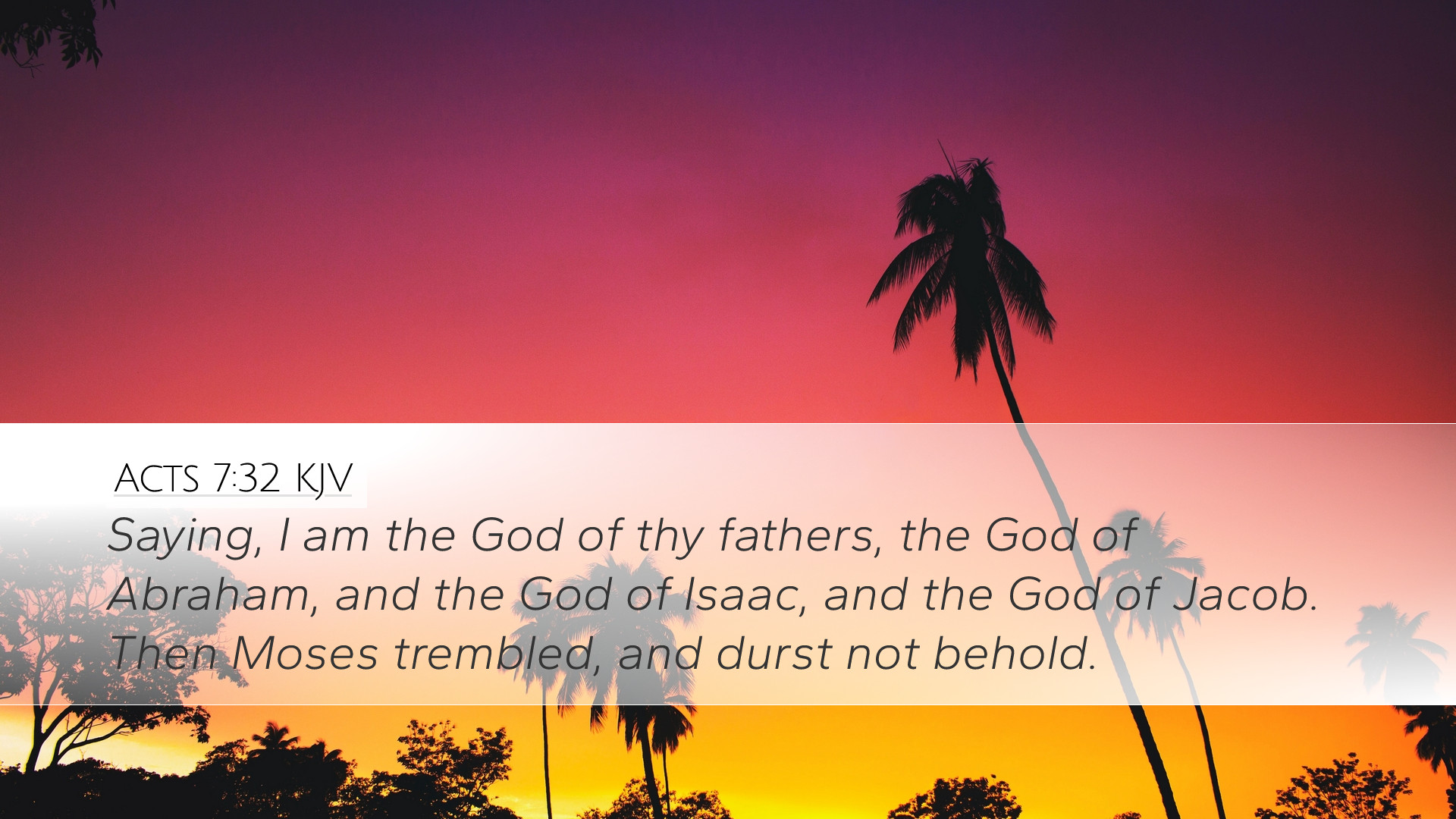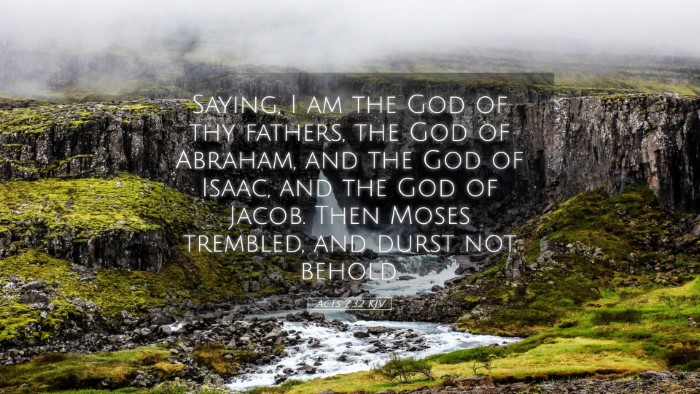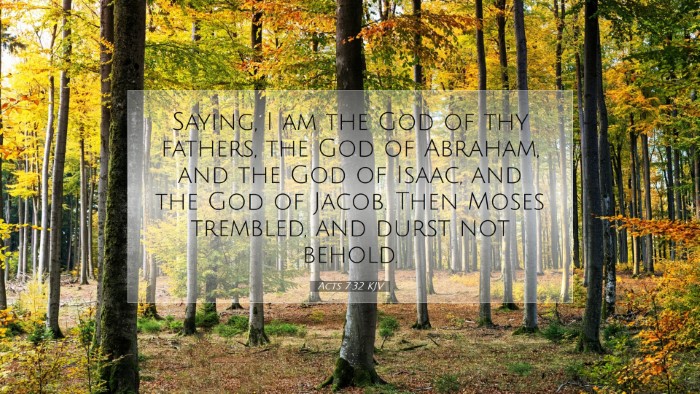Commentary on Acts 7:32
Acts 7:32 states: "Saying, I am the God of thy fathers, the God of Abraham, and the God of Isaac, and the God of Jacob. Then Moses trembled, and durst not behold."
Context and Background
This verse appears in the speech of Stephen, the first Christian martyr, as he recounts the history of Israel in his defense before the Sanhedrin. He references Moses' encounter with God at the burning bush, a pivotal moment in the Old Testament narrative that signifies God's intervention in human history and His covenantal relationship with Israel.
Theological Significance
The declaration of God as the God of Abraham, Isaac, and Jacob signifies the continuity of God's promise and the enduring nature of the covenant. This echoes the central theme of divine revelation that God has chosen a people for Himself and that history is an unfolding of God's redemptive plan.
Commentator Insights
Matthew Henry's Commentary
Matthew Henry observes that the way God introduces Himself to Moses emphasizes His eternal nature and the personal relationship He maintains with His people. Henry notes, "He is the God of thy fathers, which speaks of His faithfulness to His covenant and the courage that comes from knowing such a God."
Henry highlights that Moses’ trembling represents a proper response to God's holiness and majesty. The fear Moses displayed is indicative of a reverent acknowledgment of God’s sovereignty and presence.
Albert Barnes' Notes on the Bible
Albert Barnes elaborates on the significance of God's self-identification. He states, "God wishes to impress upon Moses the weighty truth that He is the God of his ancestors—therefore, the one who has been involved in human affairs and continue to lead His people."
Barnes points out the importance of Moses' trembling as an acknowledgment of the divine holiness. His insight reminds readers that God's presence invokes awe and fear, which are appropriate responses when encountering the sacred.
Adam Clarke's Commentary
Adam Clarke reflects on the deep implications of knowing God as the God of Abraham, Isaac, and Jacob. He states, "This reference establishes the patriarchs' enduring significance and affirms that God's covenant with them remains in effect."
Clarke also notes Moses’ apprehension: "Moses’ fear shows the seriousness of God’s commission and the gravity of His calling." He emphasizes that such fear is not merely fright but a profound reverence towards the holiness of God.
Practical Applications
- Acknowledgment of Divine Sovereignty: Understanding God as the God of our forebears encourages believers to see the continuity of faith throughout generations.
- Reverence in Worship: The trembling of Moses serves as a reminder to approach God with the appropriate reverence and seriousness.
- Covenantal Faithfulness: The ongoing relationship between God and His people encourages believers today to trust in God's promises and historical faithfulness.
Conclusion
The proclamation of God in Acts 7:32 serves as a profound reminder of His active presence in history and His unchanging nature. For pastors, theologians, and students of the Bible, it draws attention to the essence of God’s faithfulness and the necessary response of reverence and obedience to His calling. It encapsulates a narrative of continuity, underscoring that despite human failures, God remains committed to His covenant people. The insights from public domain commentaries enrich our understanding and drive us towards a deeper engagement with the sacred text.


